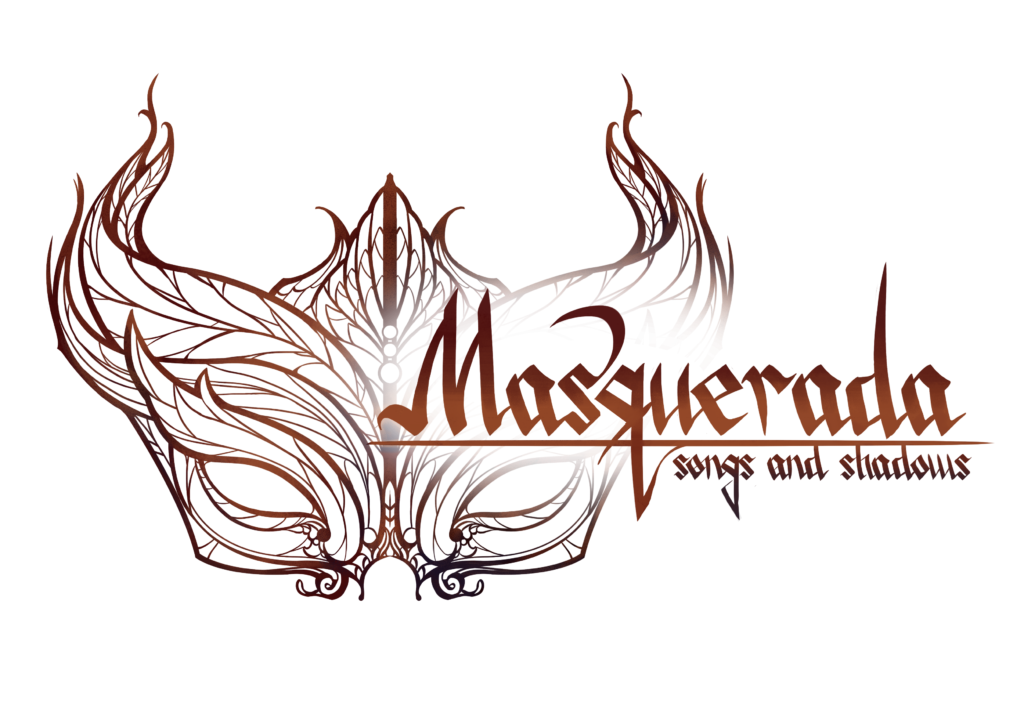
It is rare that I am instantly captivated by a game. Astonishingly rare, especially in these times of plenty for gamers. Graphics are spectacular, gameplay is crisp and inviting, and virtually every type of game out there exists in multiple formats for every type of player. We have everything we could possibly want to play. Into this paradise of gaming wonder steps Masquerada: Songs & Shadows, an isometric tactical game loosely based on Renaissance Venetian politics. Sound like a video game version of a trip to the museum? Well, in a way it is!

Masquerada introduces us to Cicero Gavar, an inspettore (inspector) for the Citte, disgraced and banished. Through Cicero, we are introduced to the Citte della Ombre and all its complex political machinations. And what a complex world this is! So complex in fact, that aside from the spectacularly lengthy exposition of the characters, the game is utterly filled with pages and pages of backstory and background on the politics, demographics, peoples, places, magic, and other interesting facts concerning Ombre. There’s so much backstory that Masquerada could honestly have been made into a novel just using the written text available to players at the touch of a button. It was incredibly reminiscent of trying to read all the books in Skyrim, only more oddly compelling, partly because of the rich setting, and partly due to exceptional writing.
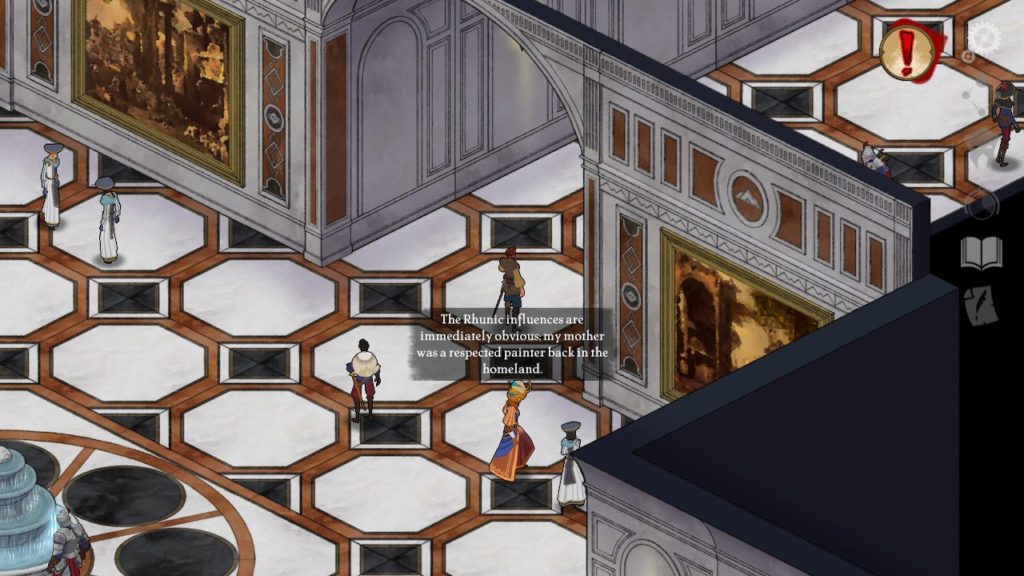
Writing is what Masquerada is all about, you see. Cicero’s story, investigation, and adventure are easily one of the best written storylines I’ve seen in a very long time. Fully fleshed out characters with complex motivations and interesting choices, laid out in a unique Venetian setting which adds masque based fantasy to the mix in a tactical combat game. Masquerada spares no expense in voice acting either, with the entire storyline full and well-acted. The only game that’s come anywhere close to creating a similar feel to the world of Masquerada is oddly enough, Dragon Age: Inquisition.
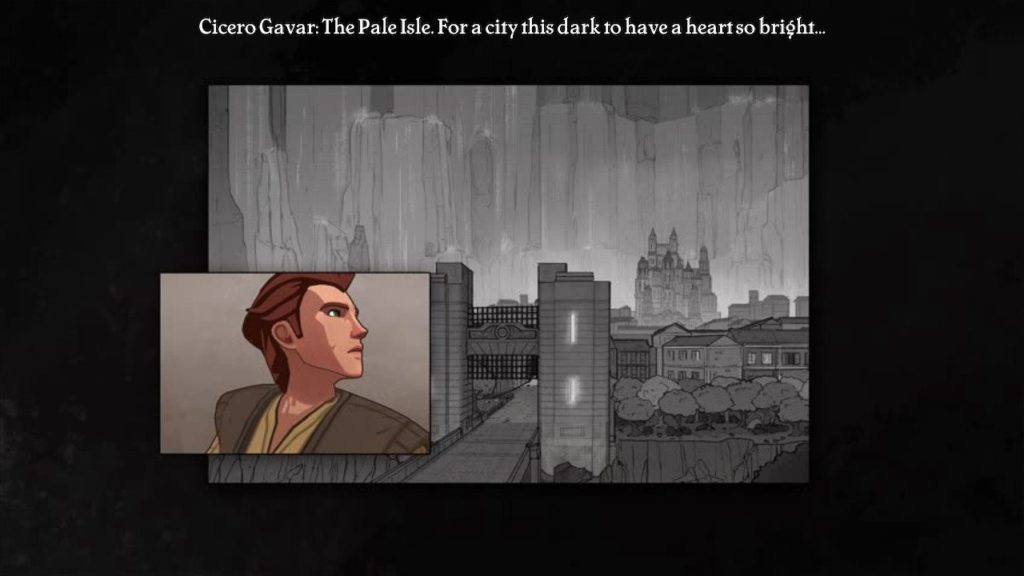
Dragon Age: Inquisition featured a rather unique main story segment titled ‘Wicked Eyes and Wicked Hearts’ in which the Grand Inquisitor attends a ball in the Winter Palace hosted by the Empress. The politics don’t really matter here, but suffice it to say that it had an incredibly similar feel to Masquerada. If you’ve played that section of Dragon Age, you’ll know exactly what I mean when I say that. It’s an utterly captivating sequence and that’s how I felt the entire time I spent with this game as well.
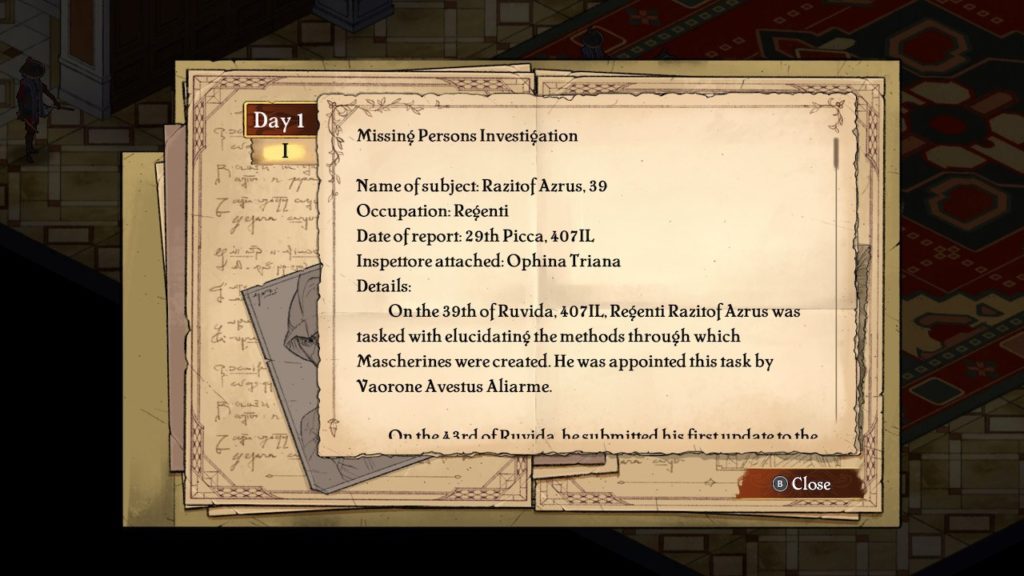
That’s not where the similarities end however. Dragon Age: Inquisition also has a rather interesting pause menu during combat which allows you to select your teammates, assign them tasks based on their skills, and then unpause combat and attack in real time with whatever character you choose. Masquerada’s combat system is extremely similar to Inquisition’s pause menu, with the main difference being that real-time combat in Masquerada is much more simplistic. Simply run up to enemies, slash, and use whatever abilities you’ve managed to unlock and assign. You’ve got magic based on whichever of the four elements you chose during initial character-building (I chose water, but it was for no specific reason) and powered by your ancient magical masque. There is a bit of tactical skill in making a clean assault on your enemies, but it’s by no means necessary, as everything is refilled at the beginning of the next combat cycle.
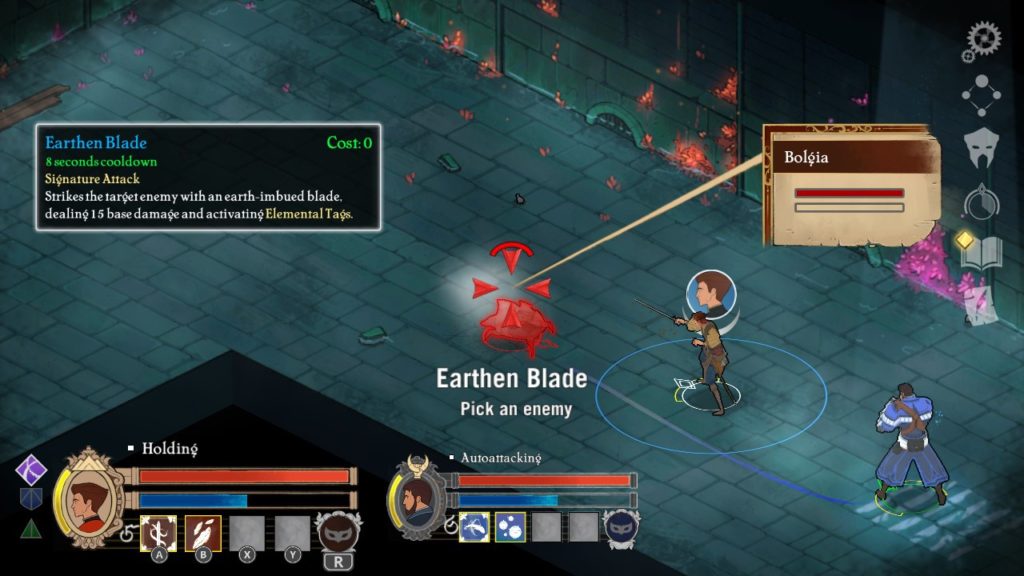
There’s not a lot of actual gameplay in Masquerada. You move from place to place, listen to the background chatter of NPCs, and then move on to the next story element. This isn’t a bad thing, however. In fact it’s a far cry from it. Masquerada is nearly entirely focused on enthralling you with a deep and complex storyline using compelling dialogue, complex backgrounds and art, and an incredible backstory and this is where the game utterly succeeds. You want to know where Cicero’s investigations will lead. You want to know who has backstabbed who. You want to know what’s happening next and why. It’s virtually addictive to move forward with the story and that’s something that just doesn’t happen often. The downside of this story-heavy approach is immediately apparent when you start playing though. The game is so driven by factions and politics that it’s not immediately apparent who anyone is and what everyone is saying. It’s actually quite confusing at first, as all the characters bandy around unique terms as if the player is intimately familiar with them. To fully grasp the nuance of everything that’s happening, you’ll definitely have to familiarize yourself with a fair bit of the aforementioned backstory.
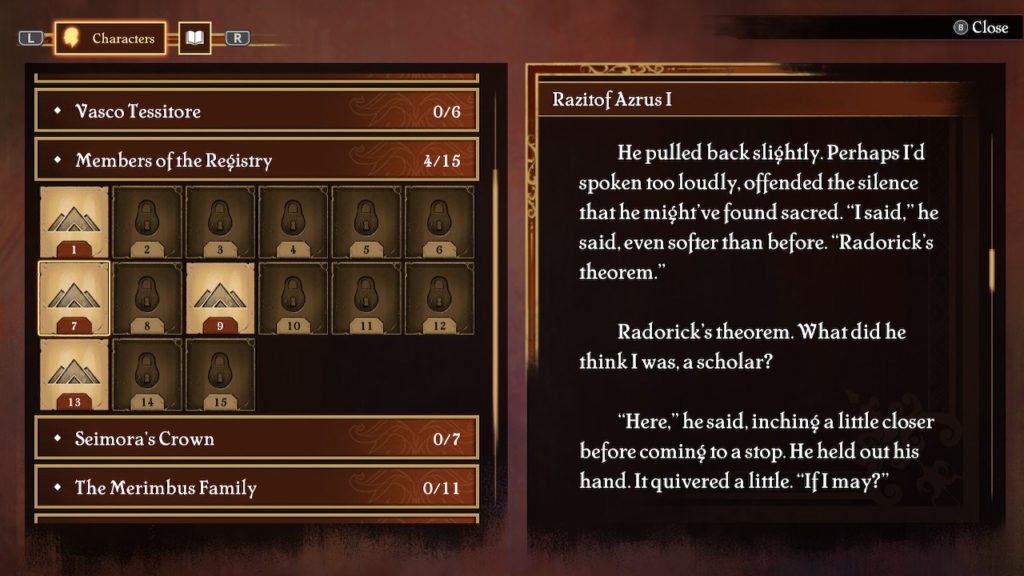
What it’s important to say about Masquerada is that it’s simply not your standard game by any means. The policital landscape of a fantasy-based Renaissance city definitely won’t appeal to all gamers. In fact, it might even be a turn off for many, especially ones expecting a traditional RPG or strategy game, as it’s definitely neither. Instead, it presents a linear narrative with limited interactive combat and lack of choices. It’s really more of an interactive story than a game, and definitely a misnomer to cast as an RPG or a tactical strategy game, as it’s neither. In addition, the text on the Switch version is incredibly small. It would definitely have been nice to have some text scaling for this title, as even with glasses on I was barely able to read some of the written dialogue. If it weren’t for the voice acting, I’d have had no idea what was going on. Portably, the game text and graphics are so small that it’s virtually unplayable and you’ll completely miss the detailed environments. It’s just not the same experience and it’s obvious that undocked support wasn’t something that was heavily focused on during the design stage. Even in docked mode, there are a few visual issues, notably a fair amount of motion blur that probably should have been cleaned up, but since you’re pretty much running a narrative rather than an open world game, it’s at least bearable.

Masquerada: Songs & Shadows is a unique beast. A beautiful narrative with spectacular voice acting that pulls you deep into a web of political intrigue and magic, but one that doesn’t actually have significant gameplay either. There’s nothing ordinary here, not the French-inspired art style, not the fascinating characters, and certainly not the complex plot. But there also isn’t a lot to do outside of follow along for the ride. Definitely don’t expect to be wandering around, building forts, collecting items, and other standards in the RPG genre. And strategy tactics are just as loosely use, to the extent that the game never really feels challenging. That being said, the story alone is enough to warrant a closer look at this one, and even if it’s not for you, you simply must appreciate the sheer effort that the design team over at Witching Hour Studios put in to fully realize their world. For $20, if you’re looking for some of the best storytelling in recent memory, you can’t go wrong with Masquerada: Songs & Shadows!
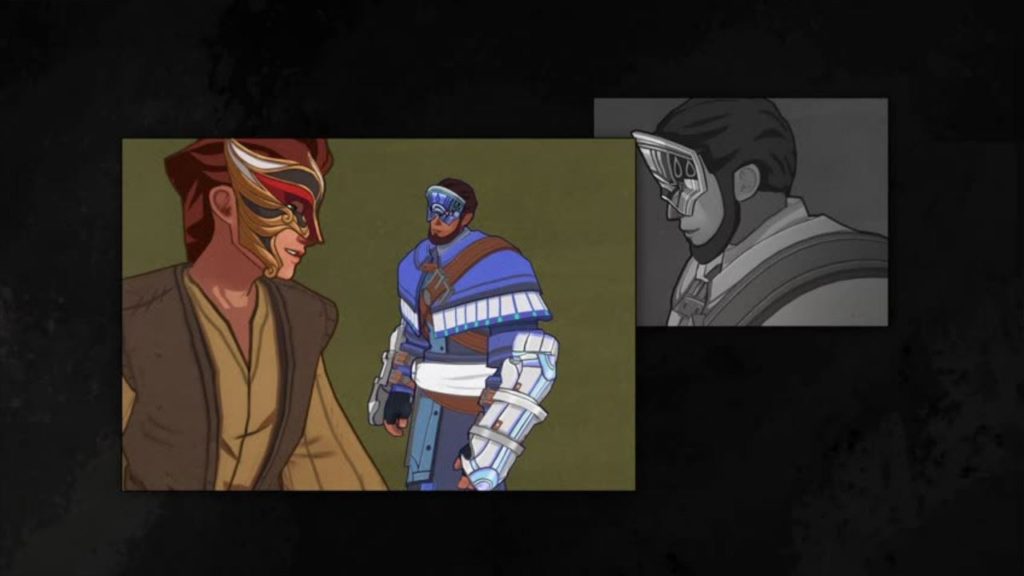
This review was written based on a digital copy of Masquerada: Songs & Shadows provided by the publisher. It was played on a Nintendo Switch in both docked and undocked modes. Masques were worn to conceal the identity of the author of this article. They will definitely not be returned to the Citte.

